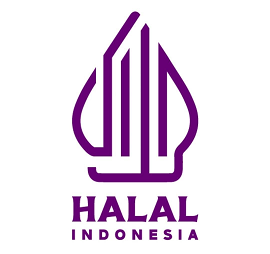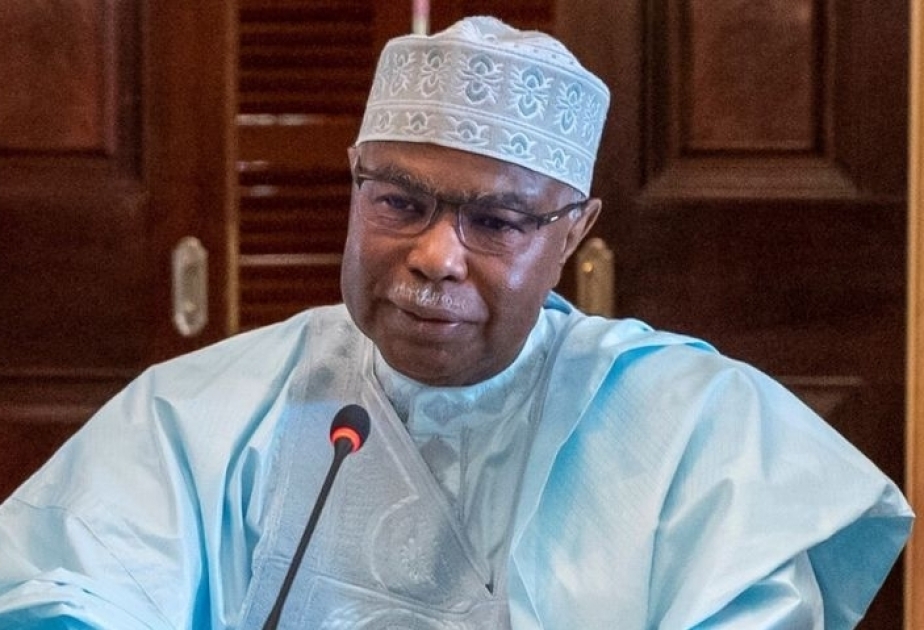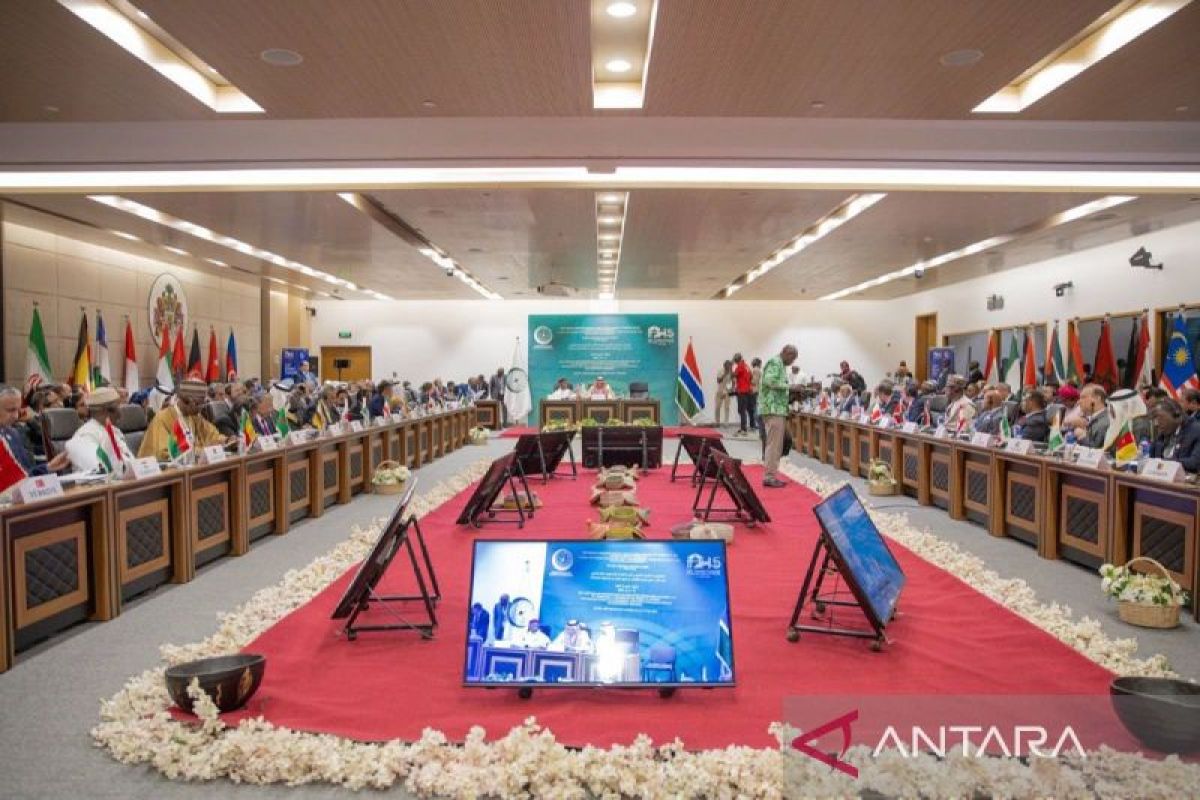 ARTICLE ONE
ARTICLE ONE
In a surprising move, Coordinating Minister for Economic Affairs, Airlangga Hartarto, announced the postponement of the #WHO2024 (Mandatory Halal October 2024) deadline for micro and small enterprises (MSMEs) in the food and beverage sector with low-risk products admissible for self-declare. This delay, extending the deadline to 2026, aims to provide businesses with more time to adhere to halal certification requirements, including those for raw materials, additives, and processing aids. The announcement followed an internal meeting on accelerating mandatory halal certification and the progress of the Government Regulation draft related to Halal Product Guarantee in Jakarta on May 15th, 2024.
According to the Coordinating Ministry for Economic Affairs, BPJPH has issued halal certificates for only 4,418,343 products since 2019, a mere 44.18% of the target of 10,000,000 products. With approximately 28 million MSMEs in Indonesia, President Jokowi’s decision to extend the mandatory halal certification deadline to 2026 is a testament to the government’s commitment to ensuring a smooth transition for businesses without disrupting their operations.
“This aligns with traditional medicines, herbal products, cosmetics, accessories, household items, and various medical devices, which are all set for mandatory halal certification by 2026. The requirement for MSMEs has also been shifted to 2026,” stated Airlangga.
Reacting to this decision, LPPOM Director Muti Arintawati empathetically expressed that many stakeholders, particularly those concerned about the future of MSMEs, will feel a sense of relief. Recognizing the vast number of businesses and the limited time until October 2024, she acknowledged the challenges MSMEs would face in meeting the deadline, potentially jeopardizing their sustainability. However, she cautions that this extension should not breed complacency. Intermediate programs and strict targets must be established to ensure businesses do not delay in obtaining halal certification. Extensive socialization efforts will be crucial to achieve this.
LPPOM emphasizes that prioritizing mandatory halal categories should consider not only business scale but also product criticality. If a critical product serves as a raw material for other products, its widespread use must be taken into account.
“We need to sift through the root of the issues. The attention should not be solely on the business scale within the MSME sector. The focus should be put on businesses supplying critical materials used in other industries, regardless of whether they are MSMEs or not. This is because the supply of food and beverage-related materials and services involves both large /medium and small/micro businesses,” Muti explained.
For example, meat availability from Animal/Poultry Slaughterhouses is crucial, as meat and its derivatives are used in various culinary products. Not all slaughterhouse products are produced by medium and large businesses; many come from small and micro slaughterhouses, including traditional and individual slaughtering in markets and residential areas. Extension of such MSMEs with a vital role in the halal supply chain would hamper the availability of halal meat, hindering halal certification of businesses using meat.
Additionally, many MSMEs offer repackaged products (in small quantities) for spices and baking ingredients (including imported ingredients). They also operate services related to food and beverage, such as trading goods and grinding.
“Ensuring the availability of halal materials and services will make it easier for MSMEs to produce halal food and beverage end products. It’s like a domino effect. If upstream issues are resolved, most halal product issues in Indonesia will also be resolved. The halal certification process will be easier, and the halal guarantee can be more accountable,” Muti Arintawati explained.
Therefore, LPPOM urges the government to focus on solving halal issues in the upstream sector first, whether it is produced by large, medium, or MSMEs. As a Halal Inspection Agency (LPH) accredited by BPJPH, LPPOM is ready to support the government in successfully implementing the mandatory halal regulations to achieve Indonesia’s goal of becoming a global halal economy. LPPOM’s concrete actions to support this goal are manifested in various programs.

One such initiative is the annual Syawal Festival, which demonstrates LPPOM’s commitment to MSMEs. This year, LPPOM facilitated independent regular halal certification for 125 MSMEs, 85 of which come from 5 Super Priority Destinations (SPDs). These include 42 MSMEs in Labuan Bajo, 10 in the Lake Toba area, 8 in the Borobudur area, 6 in the Likupang area, and 20 in the Mandalika area. Another 40 are spread across various provinces in Indonesia.
“This number is indeed tiny compared to the target and the number of MSMEs spread across Indonesia. However, through the Syawal Festival, we believe LPPOM can be a catalyst that will accelerate the growth of the halal industry in Indonesia,” Muti Arintawati concluded.
ARTICLE TWO – MORE INFORMATION ON HALAL ACTIVITIES IN INDONESIA
Encourage Muslim Friendly Areas,
LPPOM Facilitation Halal Certification in 5 Super Priority Destinations
Indonesia is a richly diverse nation where over 13% of the population practices religions other than Islam. Many of these minority communities are located in provinces that boast stunning tourist destinations. However, the culinary landscape often falls short in catering to tourists seeking halal options, whether they are local or international visitors. To address this gap, LPPOM MUI has launched an initiative to enhance halal infrastructure, aiming to bolster Indonesia’s tourism industry and ensure a welcoming experience for all travelers.
LPPOM facilitates halal certification to 744 businesses small and micro enterprises (SMEs) in Indonesia, particularly in five Super Priority Destinations (DSP), those are: Lake Toba in North Sumatra, Borobudur in Central Java, Mandalika in West Nusa Tenggara (NTB), Labuan Bajo in East Nusa Tenggara (NTT), and Likupang in North Sulawesi. This includes Syawal 1445 H Festival activities, “Acceleration of Local Community Economy through Halal Tourism,” held throughout Ramadan and Syawal 1445 H (March-May 2024). The 1445 H Syawal Festival’s peak event occurred on May 8, at Plataran Komodo, Labuan Bajo, East Nusa Tenggara (NTT).
As a pre-event, on March 5, 2024, LPPOM collaborated with the Disperindag, Regency of Bangli, Bali, to facilitate halal certification for several MSME actors in Penglipuran Village, Bali. The halal certification in the area tour is expected to expand availability to more diverse choices, so Indonesian tourism can accommodate requests from tourists, including Muslim travelers.
President Director of LPPOM, Muti Arintawati, said that as many as 744 SMEs received free halal certification?, of which 125 SMEs facilitated in a way independently by LPPOM. Of the 125 SMEs, 85 SMEs came from 5 Super Priority Destinations (DSP). There are 42 SMEs in Labuan Bajo, 10 SMEs in the Lake Toba area, 8 SMEs in the Borobudur area, 6 SMEs in the Likupang area, and 20 SMEs in the Mandalika area. As many as 40 others are spread across various provinces in Indonesia. In series, Halal socialization and education were also held in webinars and talk shows with as many as 477 participants.
“Syawal Festival is one of form LPPOM’s commitment and efforts in push government reach Indonesia’s ideals as world halal center. Amount This it’s very small indeed compared to the target and number of SMEs spread across Indonesia. However , through the Syawal Festival, we are confident that LPPOM is capable become catalyst growth halal industry in Indonesia,” said Muti Arintawati.
On occasion, his side conveys accepted love to KNEKS, Dinaskertrans (Manpower, Transmigration, Cooperatives, and SMEs), and the Health Service for existing collaboration? intertwined with Good For creating an incoming Muslim-Friendly Culinary Area in KNEKS criteria in Kampung Ujung, Labuan Bajo. Of the 42 SMEs that received facilitation in Labuan Bajo, 30 SMEs are in the Kampung Ujung area. This matter is an essential milestone in advancing a Sharia-based economy and ensuring halal, safety, and health products are circulating in this region.
Muslim-Friendly Culinary Area creates a conducive environment? for growth and a sustainable economy.? This event guarantees the public the availability of halal, safe, and healthy products. So, Indonesian tourism can accommodate requests from various tourists, including Muslims. This program also aligns with an acceleration program for product halal certification food and drink in 3,000 villages tour in frame realizing Mandatory Halal October (WHO) 2024, which is currently in progress and held by BPJPH.
“Indonesia is implementing #WHO2024 as the base law for mandatory halal certification. Halal does not change local wisdom; hopefully, everyone, including? Muslims, can enjoy it. Halal is important; for the first stage on October 17, 2024, all product food, drinks and slaughter services must be certified. We hope that the LPPOM directors in the province socialize in their respective areas, because this halal certification is the good way to conserve existing tourism,” explained the Head of the BPJPH Halal Registration and Certification Center, Hj. Siti Aminah, M.Pd.I
Meanwhile Drs. KH Amirsyah Tambunan, Secretary General MUI, emphasized that halal is universal to all circles and often becomes a lifestyle because halal food also matters as being safe and healthy. “Halal food will be become kind For all and expected can advance economy public local in Indonesia,” he said.
The peak event of the 1445 H Syawal Festival gets attention from the Minister of Cooperatives and Small and Medium Enterprises, Drs. Teten Masduki. Furthermore, the event was also attended by Dr. H. Amirsyah Tambunan, M.Ag (Secretary General Indonesian Council of Ulama; Masruroh, S.Sos., MAB (Expert Staff to the Minister for Field Affairs Ministry of Tourism and Creative Economy Business Development); Dr. Taufik Hidayat, M.Ec (Acting Director KNEKS Executive); West Manggarai Regional Government Secretary, Drs. Francis Sales Sodo; along with ranks government area West Manggarai Regency.
Minister of Cooperatives and SMEs: Indonesia is moving forward with Halal Certification
Festival Syawal, organized by LPPOM, is special and exemplary in optimizing Indonesia’s potential as a global halal producer. The product has become in demand worldwide, so standards and quality must be fulfilled through halal certification. The Minister of Cooperatives and SMEs, Teten Masduki, delivered this message at the peak event of the LPPOM 1445 H Syawal Festival, which was held on May 8, 2024 at Plataran Komodo, Labuan Bajo, East Nusa Tenggara (NTT).
“By implementing halal certification, it is hoped that MSME (Micro, Small and Medium Enterprises) products will be more guaranteed and of course will have added value to expand the distribution network to the world market,” explained Teten.
The Ministry of Cooperatives and SMEs has a transformation agenda to make Informal businesses become formal for MSMEs through strategic programs like their own legality licensing business and halal certification. They also explained that Halal certification for MSMEs for socialization, registration, and mentoring is a must. This year, we developed facilitation halal certification for joint Slaughterhouses (RPH) with LPPOM.
“I appreciate it on the holding of the LPPOM 1445 H Syawal Festival as peak activity facilitation halal certification for SMEs throughout Indonesia speed up realization achieving the target of Mandatory Halal October (WHO) 2024. I also hope through this event can become a shared momentum for support MSMEs, encourage revival economy local as well as capable make Indonesian products have power competitive in world halal industry,” said Teten.
West Manggarai Regional Government Support MSE Halal Certification in Labuan Bajo
Regional Government of West Manggarai, East Nusa Tenggara (NTT), stated his support for Syawal 1445 H Festival activities organized by LPPOM MUI. This matter is an effort to interest travelers from various circles, including Muslims. So, they support halal certification for applied to all perpetrators, especially in Kampung Ujung, Labuan Bajo. This matter was delivered by the West Manggarai Regional Secretary, Drs. Francis Sales Sodo, who at the same time represented Regent West Manggarai at the LPPOM 1445 H Syawal Festival on May 8, 2024.
“Tourist visits to Komodo Island increased by 75% in 2023, and in the first quarter of 2024, there was a 45% increase in tourists. Airliner passengers to Labuan Bajo this year grew by 16%. We (the West Manggarai Government Regency) are optimistic that Labuan Bajo will become a favourite tourist destination with character,” said Fransiskus.
His party assesses the existence of halal certificates available and strengthens the characteristics of Labuan Bajo tourism so that it becomes better for Muslims Travelers. His party pushes MSME (Micro, Small, and Medium Enterprises) actors to join in and participate in making Labuan Bajo a reality destination for domestic and foreign travel.
“We thank you love to LPPOM and the Ministry friends involved in the LPPOM 1445 H Syawal Festival, because we feel helped so that This West Manggarai experienced more progress? significant compared to other DSP (Super Priority Destinations) in Indonesia. We also thank you on support giving facilitation free halal certification for MSMEs in Labuan Bajo. Hopefully, Labuan Bajo MSMEs will continue go forward and become friendly to public foreign and domestic,” said Francis.
KNEKS: LPPOM MUI Initiates Muslim-Friendly Culinary Area in Labuan Bajo
KNEKS inaugurated the Muslim-Friendly Culinary Area in Kampung Ujung, Labuan Bajo. This matter was delivered by Acting Director Executive National Committee for Sharia Economics and Finance (KNEKS), Dr. Taufik Hidayat, M.Ec., at the LPPOM 1445 H Syawal Festival on May 8, 2024.
“Today is a historic day for the development of the Halal Industry in Indonesia. For the First time, a Culinary Area certified as Halal, safe, and Healthy was inaugurated in Nusa Tenggara, especially East Nusa Tenggara, namely Kampung Ujung. Regarding this matter, I convey my appreciation as high as possible to LPPOM, who initiated and facilitated halal certification in the region,” said Taufik Hidayat.
They also conveyed saying accept love on good cooperation? with the District Department of Manpower, Transmigration, Cooperatives, and MSMEs West Manggarai. As an underwriter, West Manggarai answered the Kampung Ujung area and assisted MSMEs in the creation of NIB. West Manggarai Health Service has to do Safe and Healthy inspections, as well as related OPDs and others who have to synergize and work outside the ordinary. With good collaboration, Muslim Friendly Culinary Area that has fulfilled the KHAS Zone requirements (Culinary, Halal, Safe and Healthy).
Based on the SGIE Report, Indonesian halal food products are also reported to be ranked second in the world. This is in line with the number of Muslim residents in Indonesia, which is the country with the most significant number of Muslims. But we cannot be complacent because our goal is to become the World’s Leading Halal Producer, and through the KHAS Zone, we can jointly support this ideal. The KHAS Zone is proof that if we all work together, we can achieve concrete things that are beneficial to the broader community together.
“We express our thanks and appreciation to LPPOM for contributing to efforts to improve the halal industrial sector, as well as improving the economy of local communities, one of which is through organizing a series of activities for the 1445 H Syawal Festival in East Nusa Tenggara,”
As part of a joint effort, he appealed to all parties to continue to support and fight for good things like this. In this way, we promote justice and sustainability in the economy and ensure a real contribution to inclusive, fair, and sustainable economic growth for Indonesia.



